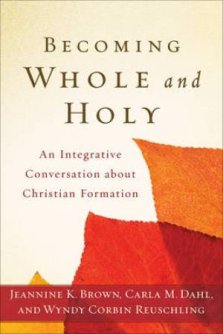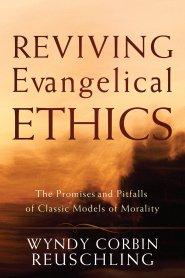The classic theories of Aristotle, Kant, and Mill have influenced Christian thought in morality and ethics for centuries. But they can go only so far, writes ethicist Wyndy Corbin Reuschling. In this readable book she introduces and overviews the three classic philosophical schools of ethics: virtue, deontology, and teleology.
While the philosophers' approaches to virtue, duty, and utility have been used widely in forming ethical and moral practices, and are helpful for understanding various dimensions of ethics, Corbin Reuschling argues that they also have limitations from a theological perspective. These theories cannot account for the richness of Christian morality, which involves Scripture, the church, and the development of conscience for increasing skills in moral reflection and ethical deliberation.
The author shows how evangelicals wittingly or unwittingly fall into one or another of the classic models without adequate biblical and theological reflection, probes deeply to deconstruct each philosophical approach, and reconstructs a broader, biblically based framework for personal and group ethics.
This clear and accessible introductory ethics text will serve college and seminary students well.
"Combining appreciation and critique, Wyndy Corbin Reuschling skillfully teases out the particular dynamics at work in the moral thinking of many evangelicals. This book is an important contribution to understanding and strengthening evangelical ethics."--Christine D. Pohl, Asbury Theological Seminary
Wyndy Corbin Reuschling (PhD, Drew University) is associate professor of ethics and theology at Ashland Theological Seminary in Ashland, Ohio. She has written for publications such as The Journal of the Society of Christian Ethics and Ashland Theological Journal.
Trustpilot











